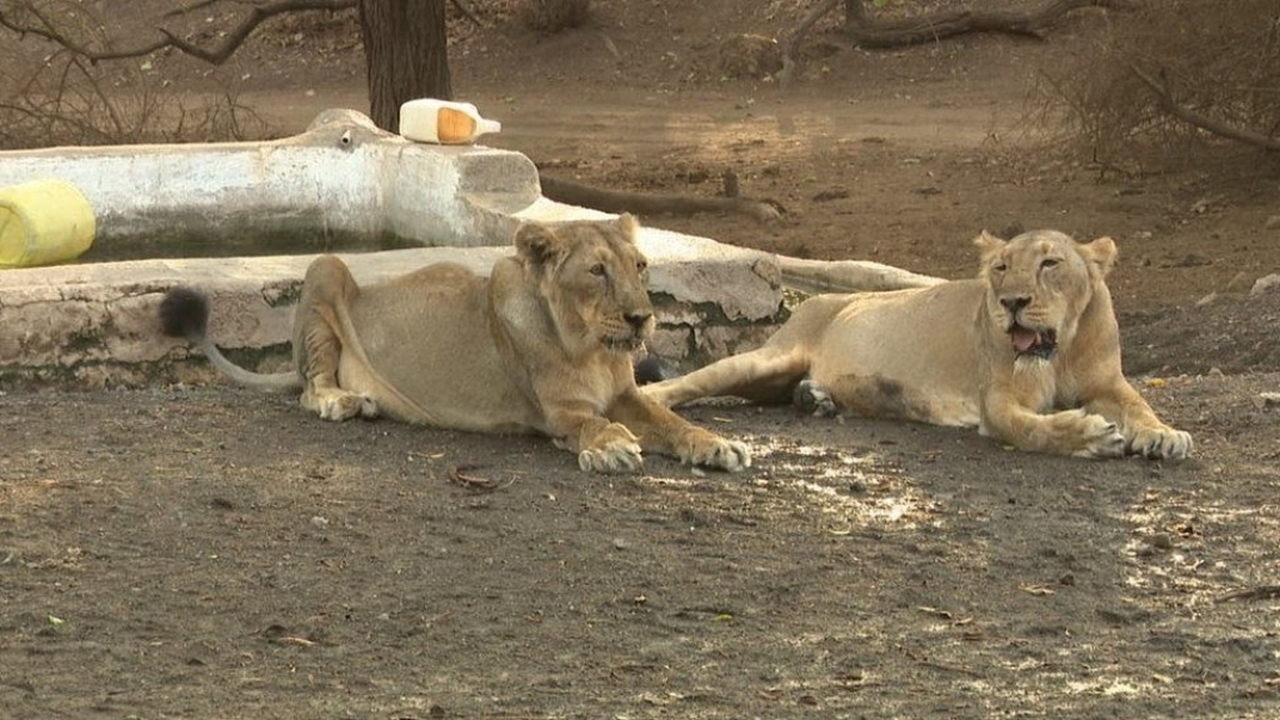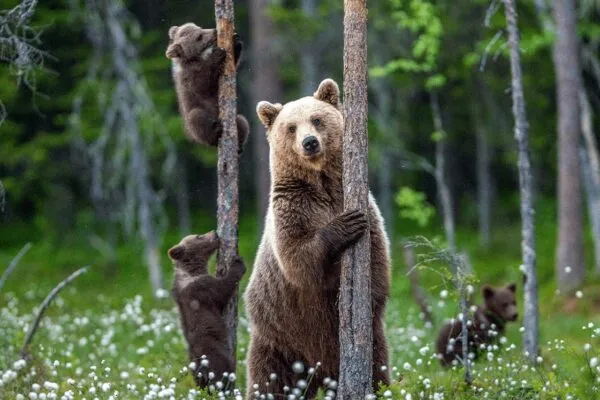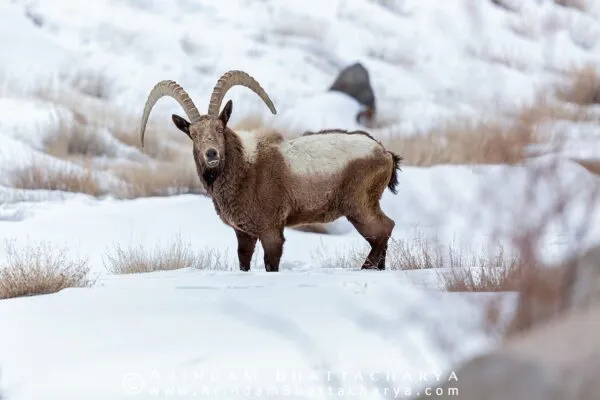Habitat Loss Forces Lions to Live in Coastal Regions of Gujarat
More than 100 lions have left their natural habitat due to biodiversity loss and followed the Heran River to the coast of the Arabian Sea

Image: Pavan Jaishwal
Generally, lions cannot adapt to coastal habitats. But since their habitats are shrinking due to human interventions, lions have no choice but to move to coastal regions. Lately, the unusual lion sightings on the beaches of the western Indian state of Gujarat have left everyone baffled and concerned. Experts say that the unusual movements of lions to beaches are due to habitat loss.
As per the estimates by the state forest department, the only natural habitat of Asiatic lions is Gujarat’s Gir forest. In 2020, there were around 400 lions in this forest. Now, there are around 275 lions in different parts of the state, whereas 104 lions have moved across the coastline in Gujarat.
The forest officials also say that lions also started reaching the coastal regions due to regional wars in the 1990s. The lions have reached the coastal regions following the Heran River that passes through the Gir forest and further joins the Arabian Sea.
Recently, many people, including Uday Shah, who owns a seaside farmhouse in the Veraval district (around 80 km from the Gir forest), have seen lions on the beach regularly. On the unusual spotting of lions, Shah mentioned that he was scared to see the lions at first. But now it’s normal, as these animals don’t bother the residents.

Image: Pavan Jaishwal
Just opposite the Veraval beach, there is a thin strip of gum arabic trees where pride resides. It gives them a similar environment to the Gir forest. Usually, these lions prey on wild boar and blue bulls around the coastal areas. But on days when they don’t find a good catch, they go to neighbouring villages to kill goats and cows.
According to Nath Parmar, who owns a mango farm near the Heran river in Somnath, lions have killed at least 10 of his calves in the last few years. Earlier, he and other villagers were furious with this. But later they realized that it was a windfall.
Earlier the villagers’ crops were damaged by herds of blue bulls and wild boar. But after lions have moved to this region, the villagers are happy that crop damage has almost stopped. Now the local farmers are learning to live with lions around their farms. So far, there has been no incident of lion attack on humans. It is because the villagers stop when they run into lions. And, they respectfully make way for the lions or turn around without disturbing them.
On this change of habitat for lions, wildlife expert Rajan Joshi mentions that lions in Gujarat have adapted according to the conditions. Now, they are becoming accustomed to being near humans in Gir and even their numbers are increasing.
However, this shift can lead to human-wildlife conflicts, resulting in loss of life on both sides. The only possible solution is to restore the natural habitat of these majestic beasts so they can thrive despite the changing climate and other natural phenomena disrupting biodiversity.
Via: BBC


